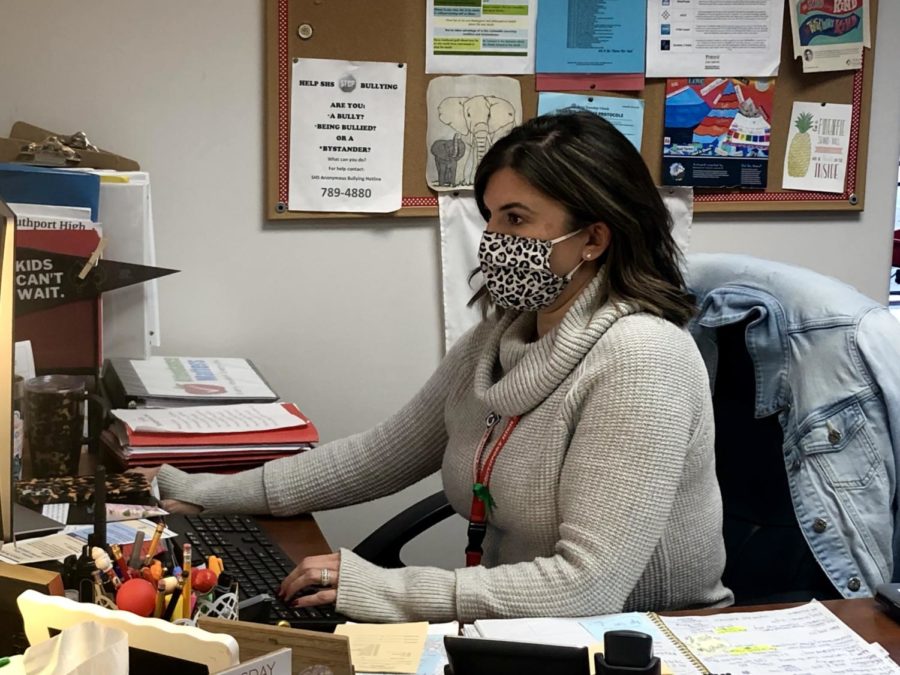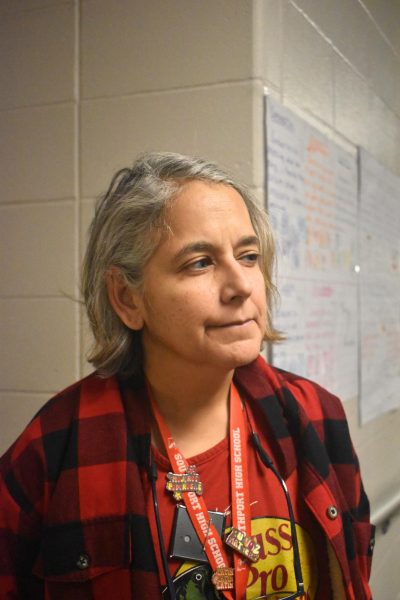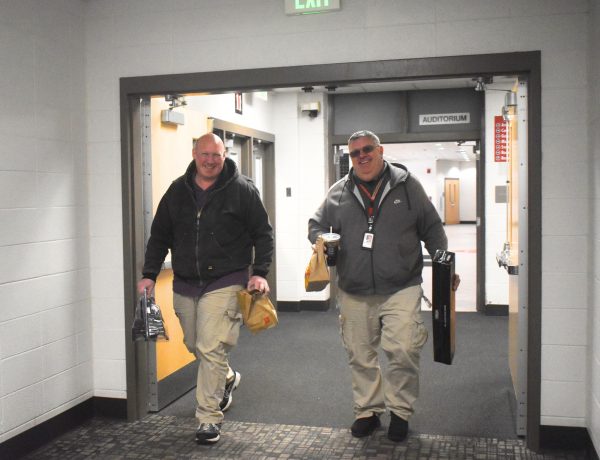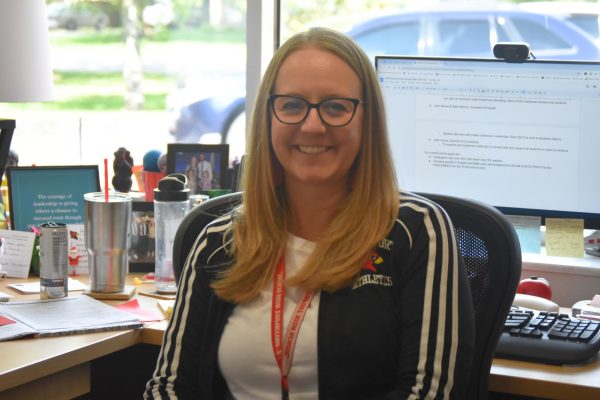An overlooked necessity
SHS social worker plays a key part in students’ mental health
Depalma works at her desk replying to emails. Students who need her help often spend large amounts of time with her in her office.
Jorie DePalma, school social worker, sits at her desk in the student services office in SHS. What will her day entail? It’s hard to say. As a social worker, what she does each day varies greatly.
One day, she may talk with several students about how SHS can support them and their families, while on another she may be giving a presentation to administration about suicide prevention or bullying. Or, she may be doing home visits, hoping to find students that have been absent from school for an extended period of time.
“It’s great because my day (always) looks different … ,” DePalma said. “It’s a mixed bag, which is the beauty of it. There’s never a dull moment.”
While people may not realize or fully appreciate all that school social workers do, their job is necessary to ensure that all students are supported and are able to reach their full potential in school.
When DePalma started college at IU Bloomington, she was a biology major and wanted to go into the medical field. But then, she began to shift more towards psychology and ended up graduating with a psychology major and biology minor. After graduating, she looked into getting a master’s degree in psychology, but realized that it didn’t suit her as it was mainly research based.
Instead, she went to a master’s program for social work because she liked how hands-on it was.
The main goal of a social worker is to help people deal with problems in their daily lives. They want to eliminate any factors that are causing the hardship. Depending on the setting where the social worker is employed, the situations that they deal with can be very different.
“Here at school, we’re trying to decrease any barriers to student success,” DePalma said.
This includes meeting with administrators, students, families and organizations in the community. She helps students in all types of situations, from those who are in foster care, to those who are struggling with mental health to those whose families aren’t able to afford necessities.
A key part of her job is being aware of the different services available so that she is able to refer people to them as is needed. Linking resources to those who need them is DePalma’s favorite part of her job.
“I love connecting families with resources that can be really life changing for them,” DePalma said. “I love hearing from former students that the small things I did during their time here really had a large impact that I didn’t know.”
Another aspect of social working is advocating for social justice. In recent years, one of her main focuses has been the LGBTQ+ community. She has worked to increase support for them in many ways such as having clubs and providing updated ID’s for transgender and nonbinary students.
“We advocate for marginalized populations and that’s really important to me,” DePalma said. “It’s a passion of mine.”
One student that has felt the impact of DePalma is senior Sean Burke, who has worked with her ever since they moved to SHS their sophomore year.
From the very beginning, Burke made an effort to get to know DePalma. They wanted to ensure that they were comfortable with her so that they could come to get help when it was needed.
“I went out of my way to make a meeting with her and get to know her and make sure that she was somebody I felt comfortable with and I felt safe enough to talk to,” Burke said.
From the first conversation, Burke felt comfortable with DePalma and knew that they could talk with her about anything they were struggling with. They could tell that DePalma really cared about their life and wanted to be there for them.
“Every time I meet with her, she asks me how things have gone that we haven’t talked about in weeks, months, so on and so forth,” Burke said. “She genuinely listens and she remembers.”
DePalma also works closely with the counseling department at SHS. The line between the job of a school social worker and school counselor can often be blurred. But the main difference between the two is that social workers take care of problems that go past school. In many cases, the problems that a student faces go far beyond the walls of SHS, and to fix the problem, the entire family must be involved.
These situations are why social workers, like DePalma, are so valuable according to Director of School Counseling Julie Fierce.
“Her role is just invaluable to the counseling department,” Fierce said. “It helps me get from here to just the next level of help.”
In the end, DePalma’s goal is to equip students and their families with what they need to be successful in their lives.
“I want to empower students, I want to empower families,” DePalma said. “I want to connect them with resources that they can engage with to help themselves.”

Howdy! My name is Lucy Hiller, and I’m a senior this year (whoop whoop), so I’m savoring every last second I get at SHS. For my third year on The Journal,...







